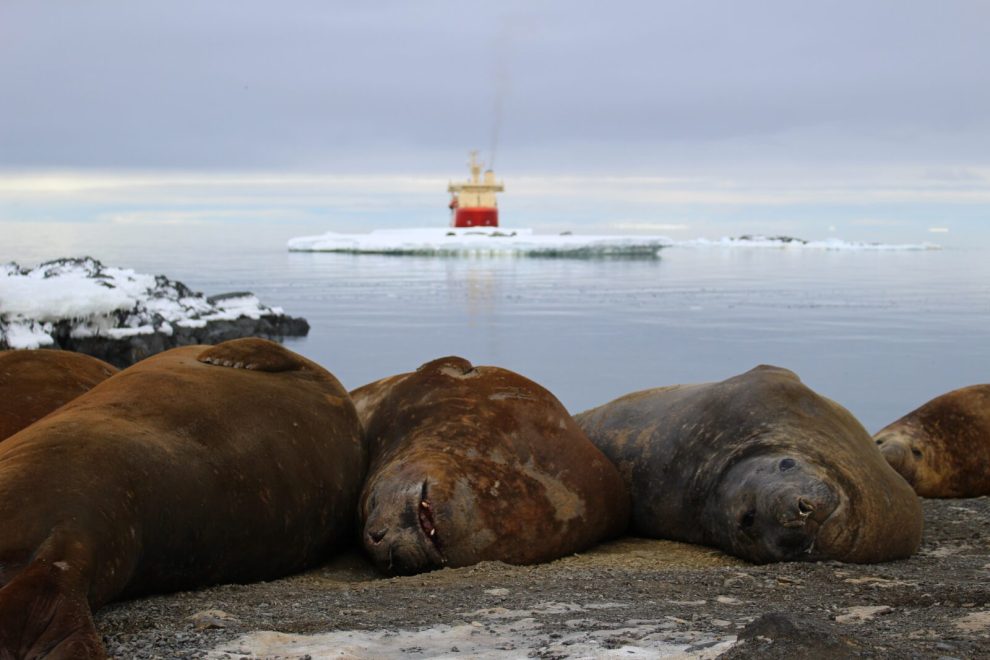Seals will be helping an Aberystwyth University academic monitor ocean warming in the Antarctic during a voyage of the RRS Sir David Attenborough.
Later this month, Dr Guilherme Bortolotto will be boarding the new British Antarctic Survey vessel to survey the ocean near the western Antarctic Peninsula, in the Weddell Sea.
How far and how fast the warm current is flowing under Antarctic glaciers, melting them from below, will affect how quickly they collapse. Their disappearance could lead to a catastrophic sea-level rise; leaving major coastal settlements across the world underwater.
Even with advanced equipment, measuring the temperature of deepwater in Antarctica can be extremely difficult – especially under the ice. However, Weddell and elephant seals regularly swim through the exact waters that scientists want to monitor.
The Aberystwyth researcher will locate and tag seals as part of this international effort to understand the effects of climate change in polar regions. The data from the seals will be received via satellite when the seals surface above the ocean.
Ahead of his research trip to the Antarctic on the RRS Sir David Attenborough, Dr Bortolotto from the Department of Life Sciences at Aberystwyth University said:
“Understanding the changes in these oceans, including the warming of specific regions, is a vital part of giving policy makers the tools to limit and mitigate the climate crisis. Seals are precious and beautiful creatures and it’s a privilege to work with them. They are like a special, crack research team – reaching places that even our most advanced technology cannot.
“I am particularly interested in investigating different things about the ecology and behaviour of those seals, such as dive characteristics and the places they prefer to go. Their swimming will hopefully help the world understand the serious impact climate change is having on our planet.”
Dr Bortolotto added:
“I’ll be mostly working alongside oceanographers to measure ocean characteristics including currents and circulation features, temperature, salinity by using multiple types of equipment. We’ll have sea-gliders, ship-based oceanographic sampling probes, as well as the help of the seals.
“My main role will be helping tag the seals to collect information on conductivity-temperature-depth conditions of the water along their deep dives. When the seals come to the surface, that information will be sent through a satellite system to a data access portal. We usually use those type of data to investigate the distribution of water masses.”
Dr Bortolotto will be researching in the Antarctic in January and March 2024 as part of the PICCOLO research project funded by the Natural Environment Research Council.



















